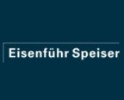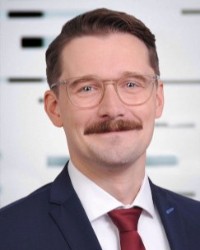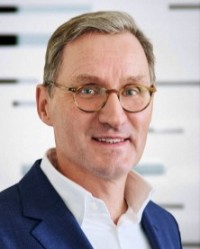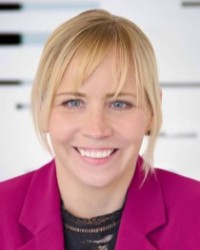The Unified Patent Court 2025
Hamburg Local Division
1. General Information
1.1 Basic Information
The Local Division Hamburg (LD HH) of the Unified Patent Court (UPC) is located at Sievekingplatz 1, 20355 Hamburg, Germany. The administrative office can be contacted by phone at +49 40 42843 4337/4338, and by e-mail at contact_hamburg.loc@unifiedpatentcourt.org. The office is available for telephone inquiries, Monday to Friday, from 9am to 4pm.
The public service office of the LD HH is open to the public on Mondays, Wednesdays and Thursdays from 9am to 12pm. Appointments outside of these hours are possible upon prior arrangement. The Division observes German public holidays and remains closed on those days. Additionally, the City State of Hamburg observes Reformation Day (October 31st), a holiday that is not observed in all German states.
1.2 UPC Judges
Two judges have been specifically assigned to the LD HH since the UPC’s launch: Presiding Judge Sabine Klepsch and Judge Stefan Schilling. Both are legally qualified judges.
Judge Sabine Klepsch
After completing her studies in chemistry in Ulm and Freiburg and subsequently earning her law degree in Bonn, Sabine Klepsch began her judicial career at the Düsseldorf Regional Court (DRC) in 2001. She has specialised in patent law since 2002 and was appointed presiding judge of the 4c Civil Chamber in 2013, which is one of the patent chambers at the DRC. These patent chambers are exclusively responsible for litigation concerning the infringement of patents and utility models, as well as disputes relating to plant variety rights and employee inventions.
Judge Klepsch previously served as a part-time judge at the UPC while continuing her work as a presiding judge at the DRC. Klepsch stepped down from her position at the DRC to take on a full-time role at the UPC on 1 May 2025.
Judge Stefan Schilling
Stefan Schilling studied law at the universities of Göttingen, Aarhus (Denmark) and Hamburg. In 2002, he was awarded a short-term doctoral scholarship by the German Academic Exchange Service (Deutscher Akademischer Austauschdienst; DAAD) and spent time at the University of California, Berkeley. He earned his Doctor of Laws (Dr iur) in 2003 from the University of Hamburg, with a dissertation on third-party liability in trade mark infringement cases. During his legal traineeship (Referendariat) in 2003–04, he worked at the Consulate General of the Federal Republic of Germany in San Francisco.
In September 2007, after two years of practicing as an attorney, Schilling joined the higher judicial service of the Free and Hanseatic City of Hamburg. From 2010 onward, he served for several years on the Civil Division of the Hamburg Regional Court (HRC), being responsible for intellectual property matters. Between 2016 and 2019, he was seconded as a research associate to the German Federal Court of Justice (Bundesgerichtshof; BGH), where he worked with the First Civil Senate. In February 2021, he was appointed as a judge at the Higher Regional Court Hamburg (HHRC). He currently serves on the Civil Senate, specialising in trade mark, unfair competition, design and copyright law.
Schilling’s selection as a judge at the UPC and assignment to the LD HH were announced on 19 October 2022. Since 1 May 2025, Schilling has also been serving as a full-time judge at the UPC.
In addition to English, he speaks Danish, Swedish, Norwegian and French.
1.3 Specific Procedural Issues
All UPC local divisions strive for a uniform procedural approach and consistent practices across jurisdictions, ensuring no material differences between the divisions. One particular strength of the LD HH is the exceptionally competent and supportive court staff, who are readily available to assist with a wide range of procedural matters.
This is especially true in relation to service of documents. The court clerks in Hamburg are well-versed in these issues, with Mrs. Bau being a member of the UPC task force dedicated to questions of service. As such, the LD HH is particularly reliable when it comes to handling service-related matters efficiently.
Notably, when serving documents by registered mail with return receipt, the LD HH accepts the electronic delivery confirmation as sufficient proof of service – there is no requirement to provide the physical return receipt.
Furthermore, and where this applies across all local divisions, providing a translation of the served documents at the time of filing significantly expedites service abroad.
1.4 Regional Division Competence
There is no applicable information in this jurisdiction.
1.5 Central Division Competence
There is no applicable information in this jurisdiction.
1.6 Court of Appeal: Purpose and Procedure
There is no applicable information in this jurisdiction.
2. Statistical Information
2.1 Types of Actions
As of 31 May 2025, the LD HH has received the following cases:
- 23 infringement actions;
- 24 counterclaims for revocation;
- 11 applications for provisional measures;
- 1 request for damages; and
- 9 applications for a cost decision.
2.2 Substantive Hearings
As of 12 June 2025, the LD HH has rendered 50 decisions and orders, including:
- three main proceedings on infringement; and
- four preliminary injunction (PI) applications.
2.3 Case Classification
The decisions and orders by the LD HH published to date are based on patents originating mainly from International Patent Classification (IPC) classes A (Human Necessities), B (Performing Operations; Transporting), C (Chemistry; Metallurgy), G (Physics) and H (Electricity).
Of these IPC classes, classes A and H are the most common at the Hamburg Local Division; and within these classes, subclasses A61 (Medical or Veterinary Science; Hygiene) and H04 (Electric Communication Technique) have been seen most frequently.
2.4 Time Lines
The timelines at the LD HH are well within the expected and desired range. In fact, there have already been proceedings on the merits that were concluded within 12 months. According to the judges, there is currently no backlog at this division.
The primary challenge, however, lies in scheduling oral hearings. Even in cases where all written submissions had been filed and the matter was ready for hearing, setting a hearing date proved difficult. In some instances, the earliest available date was nearly five months later. These delays are largely due to scheduling conflicts involving the parties, as well as the additional legally qualified and technical judges – particularly when they are based abroad. This scheduling issue is not unique to Hamburg; it is a structural challenge faced by all UPC divisions.
2.5 Interaction Between Central and Local/Regional Divisions
The LD HH has not yet referred any of its infringement actions and/or counterclaims for revocation to the Central Chamber for a decision.
3. Substantive Law
3.1 Topics Covered
Details of cases concluded at the LD HH are provided in the following.
- Avago v Tesla, UPC_CFI_54/2023:
- application for extension of time limit rejected, Rule 9 of the Rules of Procedure (RoP);
- provisional procedural order for secrecy, Rule 262A RoP;
- request for secrecy granted, Rule 262A RoP, Article 58 of the Unified Patent Court Agreement (UPCA), Article 9 Directive (EU) 2016/943;
- clarification of time limits;
- order to produce evidence/communicate information granted, Rules 190 and 191 RoP;
- dismissal of the action, counterclaim for revocation partially granted; and
- withdrawal of the application for determination of costs, Rules 156 and 265 RoP.
- AGFA v Gucci, UPC_CFI_278/2023:
- extension of deadlines in the case of a plurality of defendants; extension was granted, Rule 9 RoP;
- confidentiality request granted, Rule 262A RoP; and
- dismissal of claim, counterclaim for revocation dismissed.
- 10x Genomics, Harvard University v Vizgen Inc, UPC_CFI_22/2023:
- request for extension of time granted, Rule 9 RoP;
- on the admissibility and merits of the request for production of documents relating to non-technical objections (abuse of rights), request for production granted, Rules 190 and 191 RoP;
- request for production granted, Rules 190 and 191 RoP;
- confidentiality granted, Rule 262A RoP;
- production of documents, Article 59(1) UPCA, Rules 190 and 191 RoP, confidentiality (Rules 190.1, 191.2 and 262A.1 RoP), request for production granted; and
- further request for amendment of the patent (Rule 30 RoP) rejected after review.
- Fives ECL, SAS v REEL GmbH UPC_CFI_22/2023, UPC_CFI_559935/2023:
- preliminary objection Rule19.1 RoP, jurisdiction of the UPC, Article 32(1) UPCA, determination of damages, national patent infringement proceedings, jurisdiction refused; and
- admissibility of a request for review by the panel under Rule 333 RoP of a decision of the rapporteur upholding the opposition – request rejected by analogy with Rules 331.1 and 333.4 RoP.
- Daedalus Prime LLC v Xiaomi, MediaTek v Xiaomi, MediaTek, UPC_CFI_169/2024:
- the plaintiff’s requests for service on defendants via the designated German branch offices is dismissed, Rule 271 RoP;
- request for extension of time limit denied, Rule 9 RoP;
- panel review of confidentiality order, Rule 333 RoP; and
- jurisdiction affirmed.
- Ballinno B.V. v UEFA, Kinexon, UPC_CFI_151/2024:
- security for legal costs, Rule 158 RoP;
- request for access to file granted, confidentiality interests, Rule 262.2 RoP; and
- PI request dismissed.
- Alexion Pharmaceuticals Inc v Amgen, UPC_CFI_124/2024:
- PI request is dismissed.
- Alexion Pharmaceuticals Inc v Samsung Bioepis NL B.V., UPC_CFI_124/2024:
- preliminary injunction, Article 62(2) UPCA, Rule 209(2) RoP, validity of the patent in suit, degree of certainty, Article 62 (4) UPCA, Rule 211.2 RoP, PI dismissed.
- Roche Diabetes Care GmbH v Tandem Diabetes Care, VitalAire GmbH, UPC_CFI_88/2024:
- request to change the language of proceedings from German to English granted, Rule 323 RoP; and request for stay in relation to nullity action before the central division rejected, Rules 295(f) and 75 RoP, Article 33(5) UPCA.
- Koninklijke Philips N.V. v Shenzhen Yunding, UPC_CFI_516/2024:
- PI granted.
- Visibly Inc v Easee, UPC_CFI_525/2024:
- request to change the language of proceedings from German to English granted, Rule 323 RoP;
- admissibility of the managing director as defendant affirmed; and
- security for legal costs, Article 69(4) UPCA, Rule 158 RoP.
- Malikie Innovations Ltd v Nintendo, UPC_CFI_537/2024:
- change of name of the defendant granted; and
- confidentiality granted, Rule 262A RoP.
- Hand Held Products Inc v Scandit AG, UPC_CFI_664/2024:
- determination of service of the application.
- Nera Innovations Ltd v Xiaomi, UPC_CFI_173/2024 and 424/2024:
- the defendant’s motion to dismiss the motion for leave to amend/expand the complaint after summary judgment (Rule 334 lit (h) RoP) is dismissed – the decision on amendment of the claims (Rule 263 RoP) is left to the adjudicator at the oral hearing or decision; and
- reference to statements on combined auxiliary requests, objection of delay rejected, Rules 30.1 (b), 32.3 and 9.2 RoP.
- Lionra Technologies Ltd v Cisco Systems, UPC_CFI_58/2024:
- Rules 9.3 and 320 RoP, subsequent extension of time limit, re-establishment of rights, reinstatement granted; and
- admissible action is unfounded, admissible counterclaim for revocation is also unfounded.
- Teleflex Life Sciences II LLC v Speed Care Mineral GmbH, UPC_CFI_701/2024:
- the application for provisional measures is dismissed, Article 62(2) UPCA, Rule 209(2) RoP.
- JingAO Solar Co Ltd v Chint/Astronergy, UPC_CFI_429/2024:
- the application to dismiss the procedural order of the judge-rapporteur on security and the application to order the claimant to provide adequate security are rejected, Rules 158 and 333 RoP.
- Dolby International AB v (Seiko) Epson, UPC_CFI_77/2025:
- objection according to Rules 19.1 (a) and 20.1 RoP is rejected.
3.2 Leading Cases
Fives ECL, SAS v REEL GmbH (UPC_CFI_274/2023; ACT_559935/2023, 17 November 2023; UPC_CoA_30/2024, 16 January 2025)
On 17 November 2023 (UPC_CFI_274/2023; ACT_559935/2023), the LD HH dismissed a claim by the claimant Fives seeking the separate determination of damages by the UPC after a court of a contracting member state had established the existence of an infringement of a European patent and an obligation in principle for the infringer to pay damages. The court ruled that the UPC lacked jurisdiction in this matter, primarily because such a claim type is not included in the court’s catalogue of competences.
Fives appealed the decision. The Court of Appeal in Luxembourg ruled – under Presiding Judge Rian Kalden and Judges Ingeborg Simonsson and Patricia Rombach – that the court’s competence (or jurisdiction) includes a separate action for determination of damages. The court has jurisdiction to decide on acts of infringement committed before the entry into force of the UPCA on 1 June 2023, as long as the European patent invoked has not yet lapsed at that date (case ID: UPC_CoA_30/2024).
AGFA NV v Guccio Gucci S.p.A. et al (UPC_CFI_278/2023, 30 April 2025)
The court dismissed the infringement action as well as the counterclaim for revocation. In doing so, the court clarified the following aspects, which are also of importance for other cases:
- Article 32 (1) (e) and 65 (1) UPCA allow attack of the patent in its entirety by means of a counterclaim, even though single claims are not a part of the infringement requests;
- the definition of claimed features based on the principle that a patent may be used as its “own lexicon” is limited to those parts of the description that are related to the feature in question;
- specifications in the description that are not consistent with the granted claims cannot serve as a basis for a broad interpretation of a claim; and
- a counterclaimant cannot introduce new grounds of invalidity of the attacked patent or introduce new documents considered novelty-destroying or convincing starting points for the assessment of lack of inventive step in the oral hearing for the first time.
3.3 Pending Cases
Fives ECL, SAS v REEL GmbH (UPC_CFI_274/2023; ACT_559935/2023, 17 November 2023; UPC_CoA_30/2024, 16 January 2025)
The Court of Appeal referred the case back to the LD HH after ruling that a separate action for determination of damages is admissible and that the court has jurisdiction in this matter. The LD HH must now decide on the amount of damages. This case is of particular interest because it is likely to be the UPC’s first decision on the amount of damages. It will also be interesting to see which law the UPC applies in cases such as these, where the damages arose before the UPC came into force, and the liability for damages was determined by a national court.
3.4 Technically Qualified Judges
The following technical judges were involved in the decisions made to date: Hergen Kapels, Veronique Laure, Arwed Burrichter, Rudi Goedeweeck (twice), Giorgio Checcacci (twice), Steven Kitchen, Christian Keller and Jeroen Meewisse.
Judges Klepsch and Schilling have expressed their strong appreciation for the valuable and highly competent contributions of the technical judges assigned to their cases. However, they emphasised that staffing decisions, including the appointment of technical judges, are made centrally in Paris and are therefore beyond the control of the LD HH.
3.5 Influence of Prior Local Practice on Substantive Legal Decisions
In the decisions and case management orders available to date, no influence of previous local practices is apparent. A somewhat more generous approach to the urgency requirement for interim injunctions previously practiced by the District Court (Landgericht) Hamburg could be argued, if anything, but the available case law of the LD HH under the UPC does not suggest a deviation in approach in this respect from other local divisions.
3.6 Court of Appeal Substantive Jurisprudence
There is no applicable information in this jurisdiction.
4. Procedural Issues
4.1 Hearing Structure
Typically, the presiding judge opens the hearing with an introduction to the case, which is accompanied by a preliminary assessment outlining the key issues likely to determine the outcome. Following this, the parties are granted a short break – usually 15–20 minutes, and up to 30 minutes in more complex matters – to prepare their pleadings in response. In most cases, separate rooms can be made available to the parties for this purpose.
The LD HH does not schedule a formal lunch break, as there is no cafeteria within the court building. Generally, the court does not impose strict time limits on oral pleadings. The LD HH places trust in counsel to focus on the core issues identified during the opening. That said, time limits may be introduced at the court’s discretion if doing so is considered helpful for the efficient conduct of the proceedings.
Hearings before the UPC tend to be longer and more intricate compared to hearings before the German courts, as they usually address both infringement and revocation actions. However, the judges at the LD HH note that the overall hearing duration does not significantly differ from PI proceedings before German Courts, where both issues are frequently addressed.
4.2 Key Procedural Issues
Change of the Language of the Proceedings
When deciding whether to switch the language of the proceedings to the language in which the patent was granted, the court must consider all relevant case-specific factors and the positions of the parties. If the balance of interests is even – as in the case of Tandem Diabetes Care Inc & VitalAire GmbH v Roche Diabetes Care GmbH (UPC_CFI_88/2024, 25 July 2024), where both parties are global companies – the defendant’s preference takes precedence.
Change of the Language of the Proceedings
When the parties agree to change the language of the proceedings and one side later requests translations of existing documents, the court will weigh the need for efficiency and swift resolution. It will prioritise maintaining the language in which the patent was granted, especially when the original party submitted its written arguments and evidence in English – see Easee B.V. and others v Visibly Inc (UPC_CFI_525/2024, 22 October 2024)
Grounds for Extension of Time Limit
The need to co-ordinate with non-European suppliers whose components are central to the alleged infringement is generally not a sufficient reason to grant an exceptional extension of a time limit. Similarly, strict confidentiality obligations on the defendant typically do not justify an extension, as Rule 262A RoP provides mechanisms for protecting confidential information – see Xiaomi Technology v Daedalus Prime LLC (UPC_CFI_169/2024, 25 July 2024).
4.3 Third-Party Access to Documents
In Ballinno B.V. v UEFA (UPC_CFI_151/2024, order of 17 September 2024), the applicant was granted access to the files. In doing so, the court took into account the parties’ interests in confidentiality (Rule 262.2 RoP) and granted access to documents partially redacted and partially unredacted. The court set the following standard for access to the files. The applicant has submitted a reasoned request with respect to Rule 262.1 lit (b) RoP. The term “reasoned request” has to be understood to mean that the applicant needs to provide a credible explanation for why he/she wants access to the pleadings or evidence.
4.4 Pending Procedural Issues
As of 16 June 2025, the only publicly visible procedural issue concerns the referral of the CoA to the LD HH in Fives ECL, SAS v REEL GmbH (UPC_CFI_274/2023, UPC_CoA_30/2024), which the authors discuss in more detail in 3.2 Leading Cases and 3.3 Pending Cases.
4.5 Influence of Prior Local Practice on Procedural Issues
So far, the procedural decisions and the case management of the LD HH do not seem to suggest any influence of previous local practices; the LD HH seems to be somewhat more open to applications for extension of filing deadlines compared to other (German) local divisions, but this should not be considered as continuation of local practices of national procedure, but rather as a reasonably flexible and pragmatic approach under the UPC rules.
4.6 Court of Appeal Procedural Jurisprudence
Fives ECL, SAS v REEL GmbH (UPC_CFI_274/2023; ACT_559935/2023, 17 November 2023; UPC_CoA_30/2024, 16 January 2025)
The Court of Appeal resolved the issue of whether separate actions for determination of damages are admissible after prior national proceedings. Furthermore, the Court clarified that the UPC has jurisdiction to decide on acts of infringement committed before the entry into force of the UPCA on 1 June 2023. For more details on the case, refer to 3.2 Leading Cases and 3.3 Pending Cases.
5. Economic Issues and Remedies
5.1 Case Value and Court Fees
The amounts in dispute in most of the cases decided to date range between EUR500,000 and EUR3.75 million. Exceptions to this are the PI proceedings in Alexion v Amgen and Samsung Bioepis, where the court set the amount in dispute at EUR100 million in each case.
5.2 UPC Court Fees Compared to National Courts
Court Fees Before the UPC
The cost risk in first-instance proceedings before the UPC with an infringement action (value in dispute: EUR1 million) and a revocation counterclaim (value in dispute: EUR1.5 million) is as follows:
- infringement action – EUR11,000 (flat fee) + EUR4,000 (additional fee) = EUR15,000; and
- revocation counterclaim – EUR15,000 (same fee as for infringement action, because the fee is below EUR20,000), for a total of EUR30,000.
Concerning recoverable costs for representatives, the value under dispute for both an infringement action and a revocation counterclaim (EUR2.5 million) allows recoverable fees of up to EUR400,000.
Court Fees Before German Courts
The cost risk in first-instance proceedings in German courts (value in dispute in an infringement action, EUR1 million; and in a nullity action, EUR1.25 million) is as follows:
- infringement action – EUR18,714; and
- revocation action – EUR32,796, for a total of EUR51,510.
Concerning recoverable costs for representatives (one patent attorney and one lawyer), the cost risk is as follows:
- infringement action – EUR27,550; and
- revocation action – EUR31,925, for a total of EUR59,475.
5.3 Costs Awards
The authors are not aware of any cost award granted by the LD HH so far.
5.4 Damages
No response has been provided in this jurisdiction.
6. The Future of the UPC
6.1 Advantages and Disadvantages of the UPC
Like all trial and appeal panels of the UPC, the LD HH ensures a high-quality and uniform decision in both infringement and validity claims raised for a particular patent in suit, both with regard to the legal and technical aspects and within the consolidated timeframe set out by the RoP. The staffing of the LD HH has ensured a seamless transfer of expertise from the German national patent litigation courts, which are now joining forces with the technical and international members of the bench. Hamburg, as a global commercial hub, can also serve as a litigation gateway to the Northern European markets.
6.2 Future Trends
Over the next two years, the authors foresee further consolidation of docket and case management practices between the different divisions of the court, maintaining a degree of “local flavour” (use of interim conferences, etc) – and all within the harmonised set of rules. The new case management system (CMS) of the UPC can only help to further focus both parties’ and judges’ work on the material issues of the case. The emerging case law regarding the long-arm jurisdiction of the UPC, and in the area of standard-essential patent/fair, reasonable and non-discriminatory (SEP/FRAND), is likely to gain further traction and establish the UPC as an international forum. Further diversification of litigation strategies, combining UPC and national cases – including German utility model claims, for example – should also be seen.
6.3 The Future of National Patent Litigation
National patent litigation will most likely continue playing a substantial role as Germany is one of the biggest markets, and the infringement proceedings at the German courts are cheaper and bear a smaller cost risk. In particular, this might prompt smaller and medium-sized companies to opt for the national courts – and the now-available parallel national German patents – instead of the UPC.
6.4 Improvements to the UPC
Implementation of the new CMS as quickly as possible (which is thankfully already underway) could improve the functioning of the UPC. Other than that, there is not much to do – the staff and judges have shown an incredible degree of commitment and dedication in the first two years, which has been the foundation of the success of the new system. Together, it is hoped that they can keep it up.
Eisenführ Speiser
Johannes-Brahms-Platz 1
20355 Hamburg
Germany
+49 403 097 440
+49 403 097 4444
mailham@eisenfuhr.com www.eisenfuhr.com




